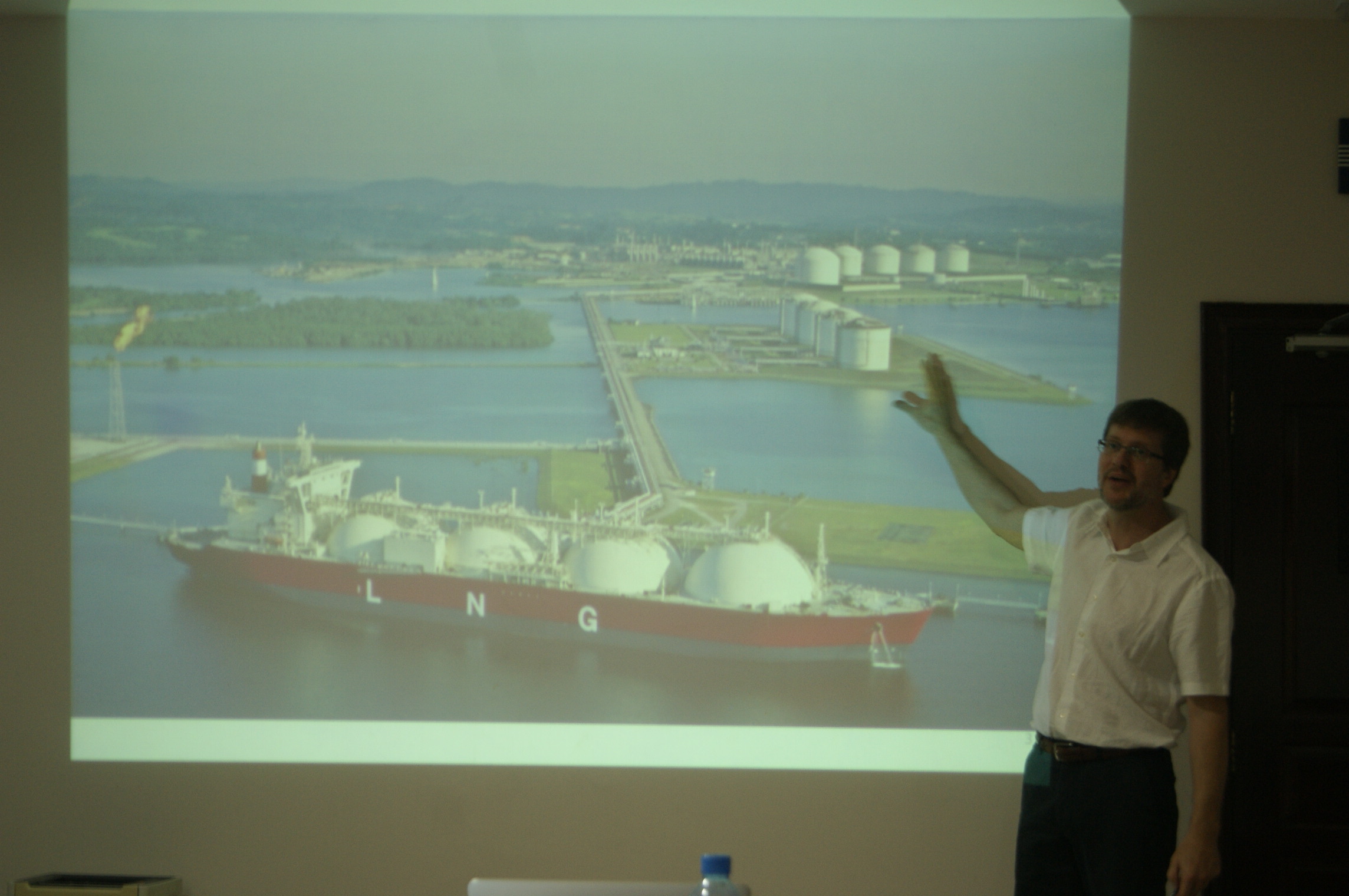Great Expectations for Tanzania’s Gas
 Civil society leaders at the workshop on LNG Economics led by Don Hubert in Dar es Salaam, Tanzania. Photo: Kisuma Mapunda/Oxfam Great Britain.
Civil society leaders at the workshop on LNG Economics led by Don Hubert in Dar es Salaam, Tanzania. Photo: Kisuma Mapunda/Oxfam Great Britain.
As natural gas becomes a growing topic in Tanzanian politics, the need for public discourse on the issue is evident.
Dastan Kweka is the Tanzania Extractive Industries Program Officer for Oxfam Great Britain.
Tanzania is set to elect its president, members of parliament and ward councillors in the Oct. 25th general elections. Our country still has a pending constitution referendum that was scheduled to take place on April 30 but got postponed indefinitely. This year`s election will be different because politicians will appeal to the potential of our natural gas resources for votes, especially in the southern part of the country, (Lindi and Mtwara) as those two regions hold significant amounts of gas reserves. But there is uncertainty over whether the general election and referendum will take place as planned due to inadequate preparations.
Public education is key to managing expectations
As predicted, developments in the gas sector are already slowing down in this election year, thus efforts to provide reliable public education to manage expectations must increase. My interactions with fellow citizens from all walks of life, either in Dar es Salaam or in the rest of the country, indicate that there is a high appetite for proper information. Nevertheless, the public discourse focusing on the gas sub-sector is limited and less inclusive, characterized by more reporting and less education-like content as well as easily accessible discussions. For citizens to be able to strengthen their demand for accountability and transparency in the governance of natural resources, there should be a deliberate shift in public discourse. I believe that the enthusiasm and commitment to learning that I have seen among civil society organizations and media will eventually lead to this shift. Proper public education that addresses misinformation and keeps citizens informed about every development that takes place in the gas sector will improve citizen trust in government and avert the risks of more unrest, like the riots that broke out two years ago when the government announced the construction of a gas pipeline.
Understanding LNG Economics

In recognition of the desire for learning and skills building and in a bid to position activists to take advantage of the expected contracts disclosure, Oxfam Tanzania recently held a workshop on Liquefied Natural Gas (LNG) Economics for Civil Society Organizations and Media. The workshop took place on April 15-16 as part of an ongoing Accountability through Active Citizenship program whose main goal is to reduce poverty by promoting environmentally, economically and socially responsible management of petroleum resources (oil and gas) in Tanzania, Ghana and Mozambique, funded by the Norwegian Agency for Development Cooperation (NORAD). In total, 11 civil society organizations from different parts of the country, working in local and national spaces and focusing on a wide range of thematic areas, were represented.
1. Lack of adequate knowledge and information is hindering women’s organizations from engaging in developments taking place in the extractive industry.
The knowledge of how the gas sector works (costs, potential revenues, contracts, etc) remains a new area for many civil society organizations and media in Tanzania. Women’s organizations seem to have lagged behind in turning to the gas sector but are now among stakeholders with high enthusiasm for building skills and devising entry points for engaging in the sector. For example, Tanzania Gender Networking programme (TGNP) is seeking ways to increase its participation in the process so that it contributes to the efforts to integrate gender considerations into the governance of natural resources, especially in the gas sector, and to ensure that women benefit equally from the huge potential the sector wields.
2. Training is not equivalent to having the requisite analytical confidence required to be able to analyze contracts/Production Sharing Agreements (PSAs).
For reliable analysis to be done, whole contract/PSA, annexes and amendments have to be made available and CSOs should devise ways to use available information for analysis and advocacy purposes. With the promise of more information becoming available as explained elsewhere in this blog, there will be a huge opportunity for advocacy. My team is positioning itself to taking advantage of that opportunity.
Peace and stability in Tanzania offer a favorable environment where the benefits of natural gas can be harnessed and reinvested for development. But for that environment to be maintained, managing public expectations is critical.